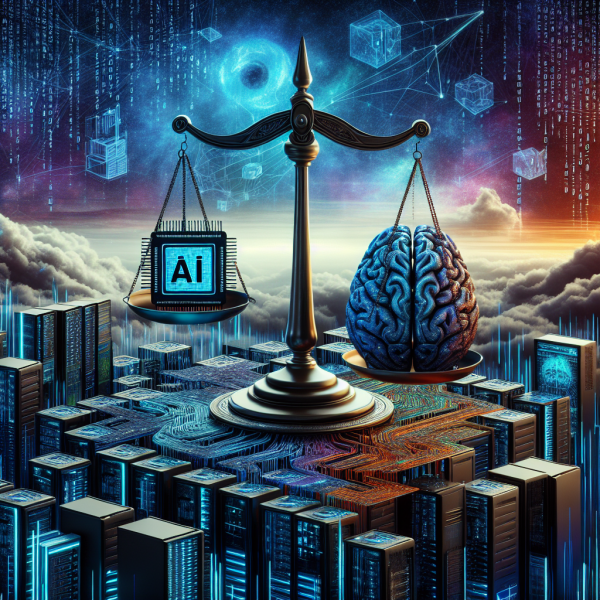Disrupting the Status Quo: The Role of Machine Learning in Shaping Tomorrow’s Technologies

Disrupting the Status Quo: The Role of Machine Learning in Shaping Tomorrow’s Technologies
In a world increasingly driven by technological advancements, one overarching theme has emerged as a catalyst for change: machine learning (ML). The field of machine learning, a subset of artificial intelligence (AI), has demonstrated immense potential to disrupt established norms and elevate industries beyond conventional limits. As organizations strive to remain competitive in an ever-evolving landscape, the application of machine learning stands as a beacon of innovation, offering transformative solutions across various sectors.
Understanding Machine Learning
At its core, machine learning involves the development of algorithms that enable computers to learn from and make predictions based on data. Distinct from traditional programming, where explicit instructions dictate behavior, machine learning allows systems to identify patterns, adapt, and improve over time through experience. This capacity for learning from data is revolutionizing how businesses operate, how decisions are made, and ultimately, how technologies are conceived.
Disruption Across Industries
1. Healthcare
In the healthcare sector, machine learning is reshaping diagnostics and treatment paradigms. By analyzing vast amounts of medical data, ML algorithms can identify trends that may elude human practitioners. For instance, ML models have shown promise in predicting disease outbreaks, personalizing treatment plans, and even aiding in drug discovery. This shift towards data-driven insights not only enhances patient care but also reduces costs, streamlining processes that have traditionally been cumbersome.
2. Finance
The financial industry is witnessing a seismic shift as machine learning algorithms facilitate real-time analysis of financial data, enhancing decision-making and risk management. Algorithms can detect fraudulent activities with uncanny accuracy, assess creditworthiness more effectively, and optimize trading strategies by predicting market shifts. As a result, consumers are presented with personalized financial products that cater to their unique needs, while companies face reduced losses and improved operational efficiencies.
3. Retail
In retail, machine learning is redefining customer experiences. Through data analysis, retailers can better understand consumer behavior, anticipate demand, and manage inventories. Recommendations tailored to individual preferences enhance customer satisfaction, driving sales and loyalty. Additionally, ML aids in supply chain optimization, allowing retailers to anticipate disruptions and adjust their strategies accordingly. This harmony between technology and consumer needs marks a paradigm shift in how retail operates.
4. Transportation
The transportation industry is undergoing a revolution powered by machine learning. Autonomous vehicles, driven by advanced ML algorithms, are increasingly becoming a reality. By processing data from sensors and cameras, these vehicles can navigate complex environments, improving safety and efficiency. Furthermore, machine learning optimizes logistics, enabling companies to devise routes that save time and fuel. As a result, urban planning and commuting patterns are being reshaped for the better.
The Ethical Considerations
While the potential of machine learning is vast, it is essential to acknowledge the ethical implications associated with its deployment. Issues pertaining to data privacy, algorithmic bias, and the potential displacement of jobs must be addressed proactively. Organizations must strive for transparency and accountability in the development and application of machine learning technologies. A collaborative approach involving stakeholders from different backgrounds can promote a more inclusive future where technology benefits all.
The Future of Innovation
As machine learning continues to evolve, its impact will only deepen. The convergence of ML with other emerging technologies, such as blockchain and the Internet of Things (IoT), presents new possibilities for disruption. By integrating these technologies, businesses can unlock unprecedented efficiencies and drive sustainable growth. Moreover, cross-industry collaboration will foster innovations that transcend traditional boundaries, sparking new business models and capabilities.
Conclusion
Machine learning stands at the forefront of technological innovation, disrupting the status quo across various sectors. Its ability to learn from data and adapt to change is propelling industries into a new era of efficiency, personalization, and sustainability. However, embracing this transformation requires a balanced approach that addresses ethical concerns and prioritizes inclusivity.
As we look to the future, the role of machine learning as a force of change is unmistakable. Organizations that harness its potential will pave the way for a more innovative, efficient, and equitable world. The journey is just beginning, and the possibilities are boundless—transforming the fabric of tomorrow’s technologies and redefining what is possible.














